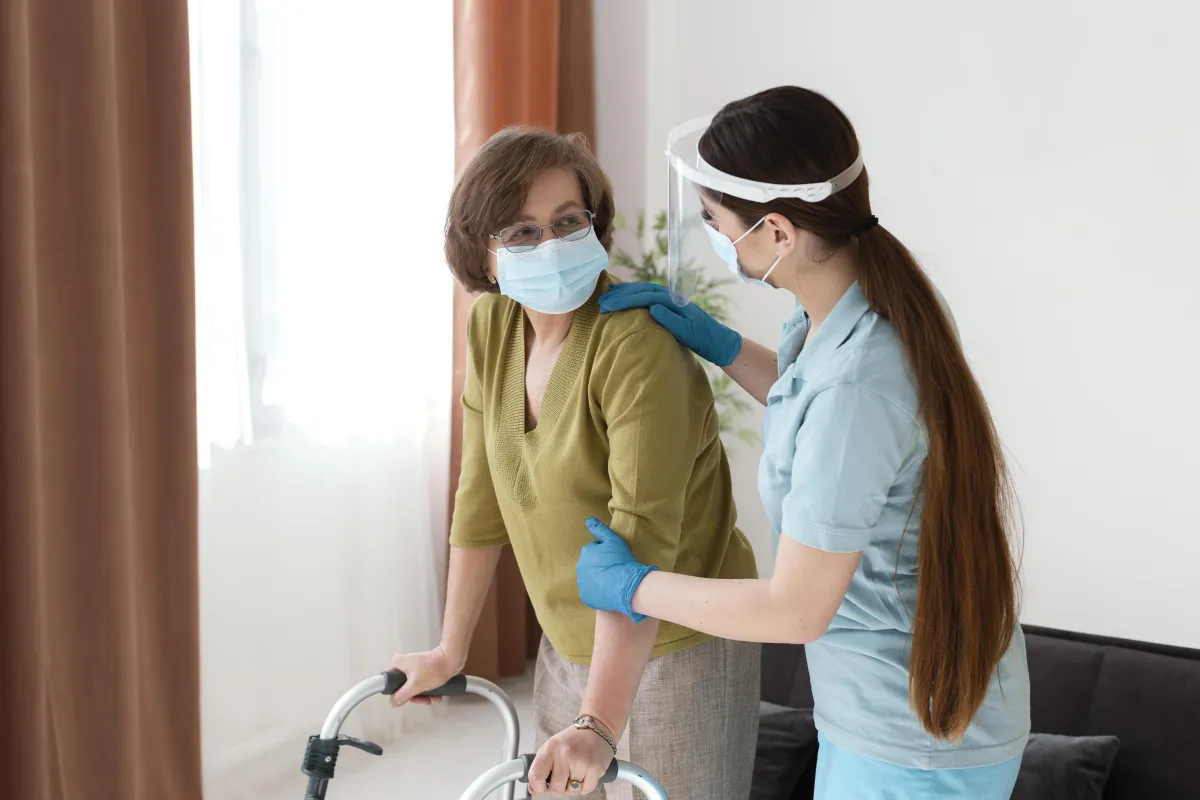
Why Infection Control Begins with Daily Cleaning Habits in Senior Care?
Infection control is a top priority in senior care environments. With older adults often having compromised immune systems, the risk of illness increases significantly. Establishing and maintaining effective cleaning routines is not optional, it's essential. Daily cleaning practices play a key role in preventing the spread of harmful germs, particularly in shared spaces where residents spend most of their time.
Understanding the Risk of Infection in Senior Care
Senior care communities are usually faced with high touch surfaces, shared equipment, and communal actions, all of which may lead to a germ progression. Respiratory infections, stomach viruses, and antibiotic-resistant bacteria are only a small sample of those concerns that require preventive hygiene management.
Such health risks are not only potential dangers, they are real everyday dangers. Staff and residents mingle extensively, and, without intense hygiene protocols, one case can easily grow to a facility-wide outbreak.
The Link Between Daily Cleaning and Infection Prevention
Cleaning up on a routine basis does more than cleaning just cleaning. It cleanses the environment from dirt, germs and pathogens. High-traffic and high-touch spaces need constant effort to reduce risks. This involves doorknobs, handrails, elevator buttons, and common bathrooms, places that bacteria can flourish.
Disinfection on a daily basis will prevent the spread of disease before it begins. Cleaning is one of the first lines of defense that complements top-level infection control strategies, such as hand hygiene or an individual's use of personal protective equipment.
The Role of Housekeeping in Infection Control
Senior living housekeeping services are of central importance in ensuring the provision of a safe and clean environment. Trained housekeeping personnel know how to apply the EPA-approved disinfectants, know proper cleaning procedures & can identify high-priority areas.
A professional team of housekeepers doesn't stop on what can be seen. Their focus is on surfaces that can breed invisible hazards and spaces. Through the following checklist every day, they make their cleaning process consistent and systematic, two essential factors in the prevention of infections.
Why Common Areas Deserve Special Attention?
Common lounges, dining places, and recreation rooms are a defining feature of senior communities. These spaces promote socializing, which is very good for mental and emotional health. But at the same time, they produce opportunities for germ spread.
It is for that reason why the common area cleaning services are important. These services emphasize on disinfection of frequently used surfaces and furniture.
All these include chairs, tables, remote controls as well as vending machines that require regular care. If left unattended, these surfaces can serve as the conduit through which infections can spread very fast.
Regular cleaning makes sure that such frequently used spaces are safe and comfortable. When cleaning crews pay close attention to the common areas they ensure that the community health is maintained.
Creating a Culture of Cleanliness
Housekeeping norms go far beyond habits. Involvement of caregivers and administrative personnel and even residents should be considered for enforcing standards of hygiene. Promotion of hand washing, making sanitizers available easily as well as ensuring there are visual reminders all contribute towards a culture that emphasizes cleanliness.
The responsibility of safeguarding against infections should be shared among all the workers. Trained cleaners backed by intelligent policies make sure that cleaning is not a chore, but an integral part of the health promise of the community.
Tailoring Cleaning Protocols to Individual Needs
All senior care facilities are unique, and so are the needs of people who live there. There are people who need more precautions as they have some medical conditions. In these cases, cleaning protocols have to be individualized.
For instance, people with compromised respiratory systems may require hypoallergenic cleaning agents. Some may need the more regular sanitation of rooms. Senior living housekeeping services can be flexible and adapt their service to meet these personal requirements thus guaranteeing that everyone gets the safest environment possible.
Consistency is Key to Long-Term Success
The effect of daily cleaning is an aggregating phenomenon. Missing a single day can leave an opportunity for the build-up of bacteria. That is why consistency is the base of any plan for infection control.
Building or real estate that work with trustworthy common area cleaning services providers enjoy routine, time-set cleanings that do not allow leeway. Such consistency helps ensure that at busy and understaffed times sanitation will be an imperative.
Supporting Staff Through Training and Resources
No matter how best the cleaning plan is it cannot be effective if the staff is not trained adequately. The care teams and housekeepers should be aware of the significance and technique of cleaning properly. Routine training, the access to the new guidelines, and availability of the proper supplies do make a difference.
Senior living housekeeping services that invest in their staff development offer better quality services. Professionals that receive proper training can adjust in a short period, are capable of responding to unforeseen spills, and can always guarantee that the facility is clean or even better than clean at all times.
Conclusion
Infection control begins with consistent daily actions. A clean environment is a healthy environment, especially in senior care settings where vulnerability is higher. Whether it's through reliable common area cleaning services or customized senior living housekeeping services, the commitment to hygiene must be strong, shared, and ongoing.
Get in touch with AB/CD Cleaning today for customized senior care cleaning solutions that truly make a difference!